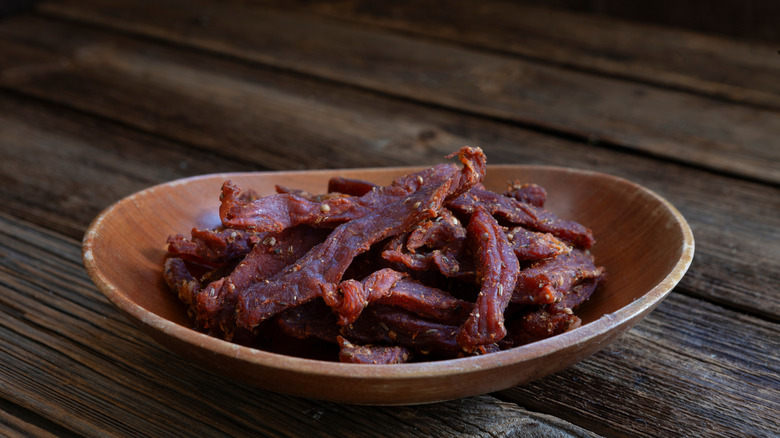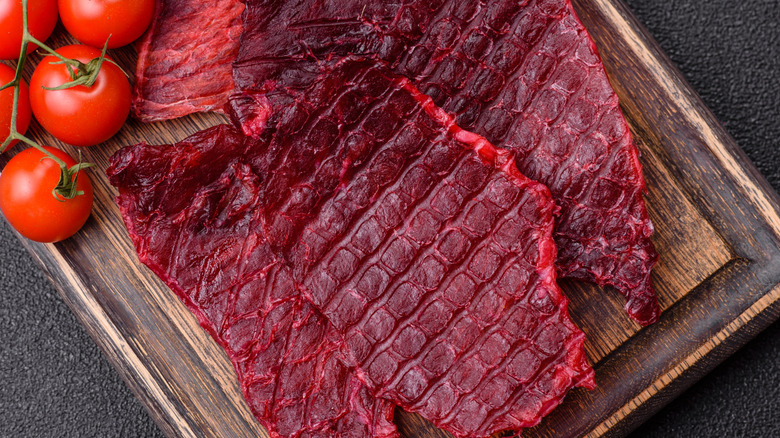The Secret To Homemade Beef Jerky That's Melt-In-Your-Mouth Tender
Jerky was once a staple food which helped ancient travelers (and now, modern road trippers) survive a long journey with no access to refrigeration. In more recent years, jerky has undergone the same sort of hipster makeover that has seen deli meats rebranded as charcuterie. These days, you can find vegan jerky made from Beyond Meat, tofu, and vegetables; while sustainable earthworm jerky is also a thing. To find out more about making jerky at home, we talked to Jon Urbana, who runs an online wagyu retailer called KOW Steaks. During our conversation, Urbana shared some tips on how to keep homemade beef jerky from getting too dry — it starts with choosing the right cut of beef.
"The cut of steak you choose has a big impact on the final tenderness of your jerky," Urbana told The Takeout. If you're grilling a steak for dinner, you might want one with a lot of marbling, since fat equals flavor, but fatty meat doesn't make the best jerky. "A lean, consistent cut like inside round works best because it produces a tender bite without excess fat," he said. "As with any recipe, starting with good ingredients makes all the difference."
Marinating and not over-cooking jerky are also key
In addition to choosing the right meat for beef jerky, you'll also need to prepare it properly. It needs to be sliced thin but not too thin — anywhere between ⅛- and ¼-inch will work. After slicing, it should be marinated in order to ensure tenderness. "Thin slicing and proper marination help tenderize the meat while keeping a satisfying, sturdy texture," Urbana assured us.
Urbana's formula for the marinade involves four parts. "The basics of a good jerky marinade are simple: salt to season and draw out moisture, an acid like soy sauce or vinegar to help the flavors absorb, and spices or herbs for depth. A touch of sweetness, like brown sugar or honey, balances the savory elements." (Our easy steak marinade will work, as long as you add some sweetener.) He recommends leaving the beef strips in the marinade for 12 to 24 hours. "That's enough time to build flavor without softening the meat too much."
The final step in making jerky involves drying out the meat in a dehydrator or oven. This can take 10 to 24 hours, but Urbana advises keeping an eye on the meat as it dries. "Drying time has a big impact on texture. If jerky is left too long, it can turn dry and tough," he said. "You want it fully dried but still slightly pliable so it stays tender when you chew it."

